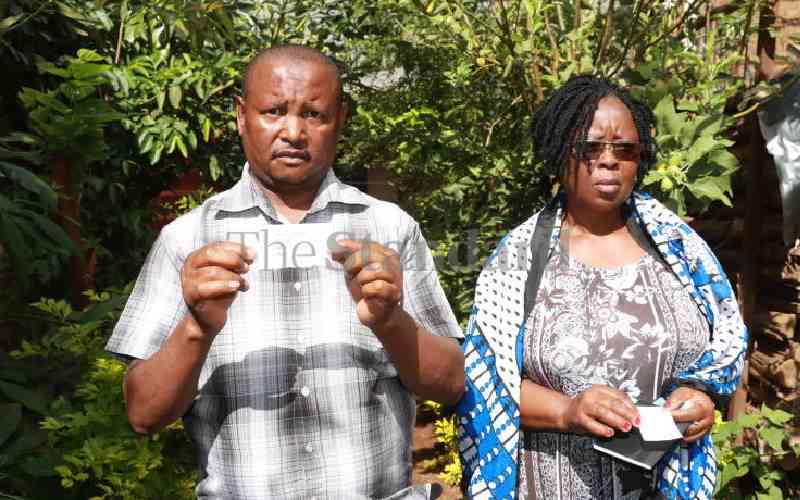
"Kacheliba is the main treating centre. This year, we have recorded 500 cases and we expect to surpass 600 cases at the end of the year. The burden is still heavy," he said.
Kimani added that they have recorded 12 cases of repulses of the disease for five years but they haven't recorded fatalities.
Leishmaniasis, according to the Centres for Disease Control, is caused by infection with Leishmania parasites, which are spread by the bite of infected sandflies. The most common forms are cutaneous leishmaniasis, which causes skin sores, and visceral leishmaniasis (kala-azar or "black fever), which affects several internal organs (usually the spleen, liver, and bone marrow) and is the most severe form of leishmaniasis.
When bitten by an infected female sand fly carrying parasites, Kimani said, a patient starts having fever, abdominal swelling, weight loss, and anaemia among other symptoms.
"We treat patients with kalaazar with Sodium Stibogluconate plus paromomycin for 17 days," he said.
The free one-week medical camp at St Comboni Kacheliba Girls Primary School was convened to offer treatment to locals with conditions including kalaazar and mycetoma and was organised by the Drugs for Neglected Diseases initiative (DNDi) that attracted several affected residents.
DNDi's Head of Mycetoma Disease, Dr Borna Nyaoke while addressing the media after examining a patient with Mycetoma said the 15-year-old, had suffered for 5 years without seeking medical attention.
He said ultrasound and laboratory tests would be done and also prescription medicine would be given to prevent the disease from affecting bones.
"Mycetoma never stops spreading. At some point, it starts to release pus with white or coloured grains. It doesn't heal spontaneously but needs more effective treatment at early stages," she said.
Dr Borna pointed out that Mycetoma mostly affects pastoralists who herd their livestock in thorny areas, who while in grazing fields, get pricked.
Lucas Lotodo, a patient suffering from eye complications said he turned up at the medical camp for examination.
"I am hopeful I will be healed. I travelled to Uganda to seek medication but have never been healed. For two years, I have suffered," he said.
West Pokot County executive officer for Health Clare Parklea said most of the residents do not know the symptoms of the neglected disease as they keep on suffering in silence.
Stay informed. Subscribe to our newsletter
 The Standard Group Plc is a
multi-media organization with investments in media platforms spanning newspaper
print operations, television, radio broadcasting, digital and online services. The
Standard Group is recognized as a leading multi-media house in Kenya with a key
influence in matters of national and international interest.
The Standard Group Plc is a
multi-media organization with investments in media platforms spanning newspaper
print operations, television, radio broadcasting, digital and online services. The
Standard Group is recognized as a leading multi-media house in Kenya with a key
influence in matters of national and international interest.
 The Standard Group Plc is a
multi-media organization with investments in media platforms spanning newspaper
print operations, television, radio broadcasting, digital and online services. The
Standard Group is recognized as a leading multi-media house in Kenya with a key
influence in matters of national and international interest.
The Standard Group Plc is a
multi-media organization with investments in media platforms spanning newspaper
print operations, television, radio broadcasting, digital and online services. The
Standard Group is recognized as a leading multi-media house in Kenya with a key
influence in matters of national and international interest.





